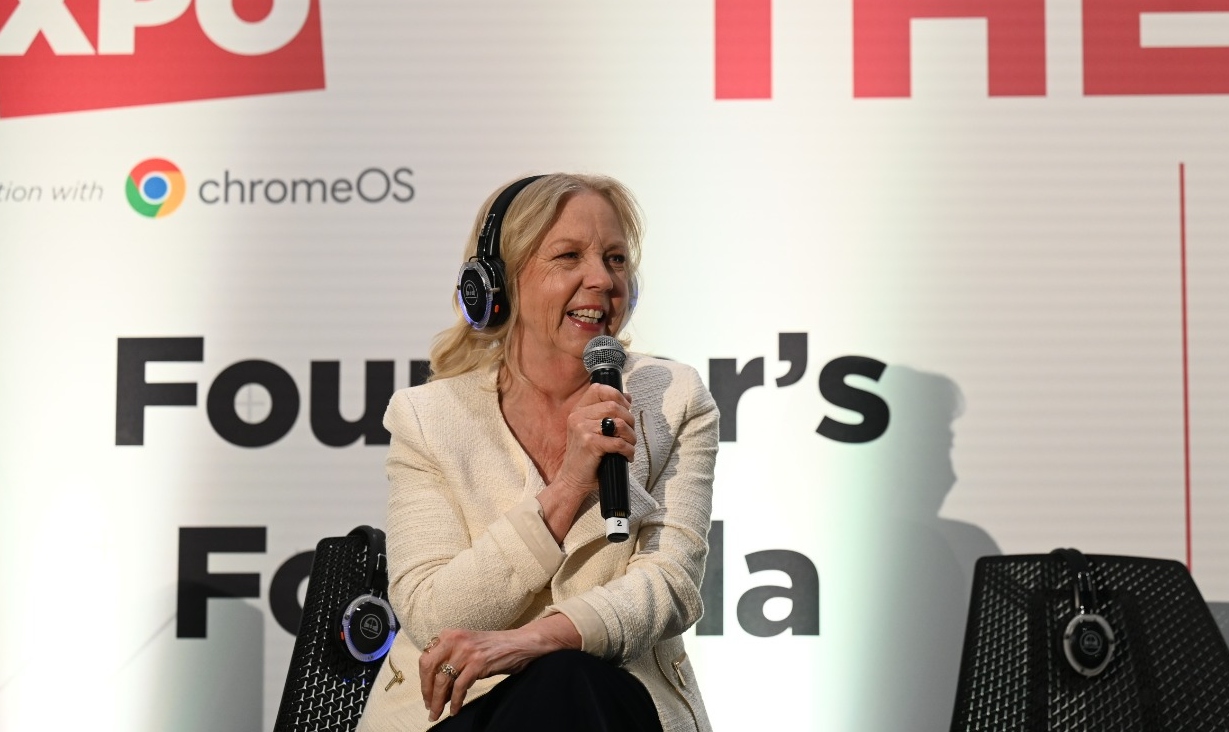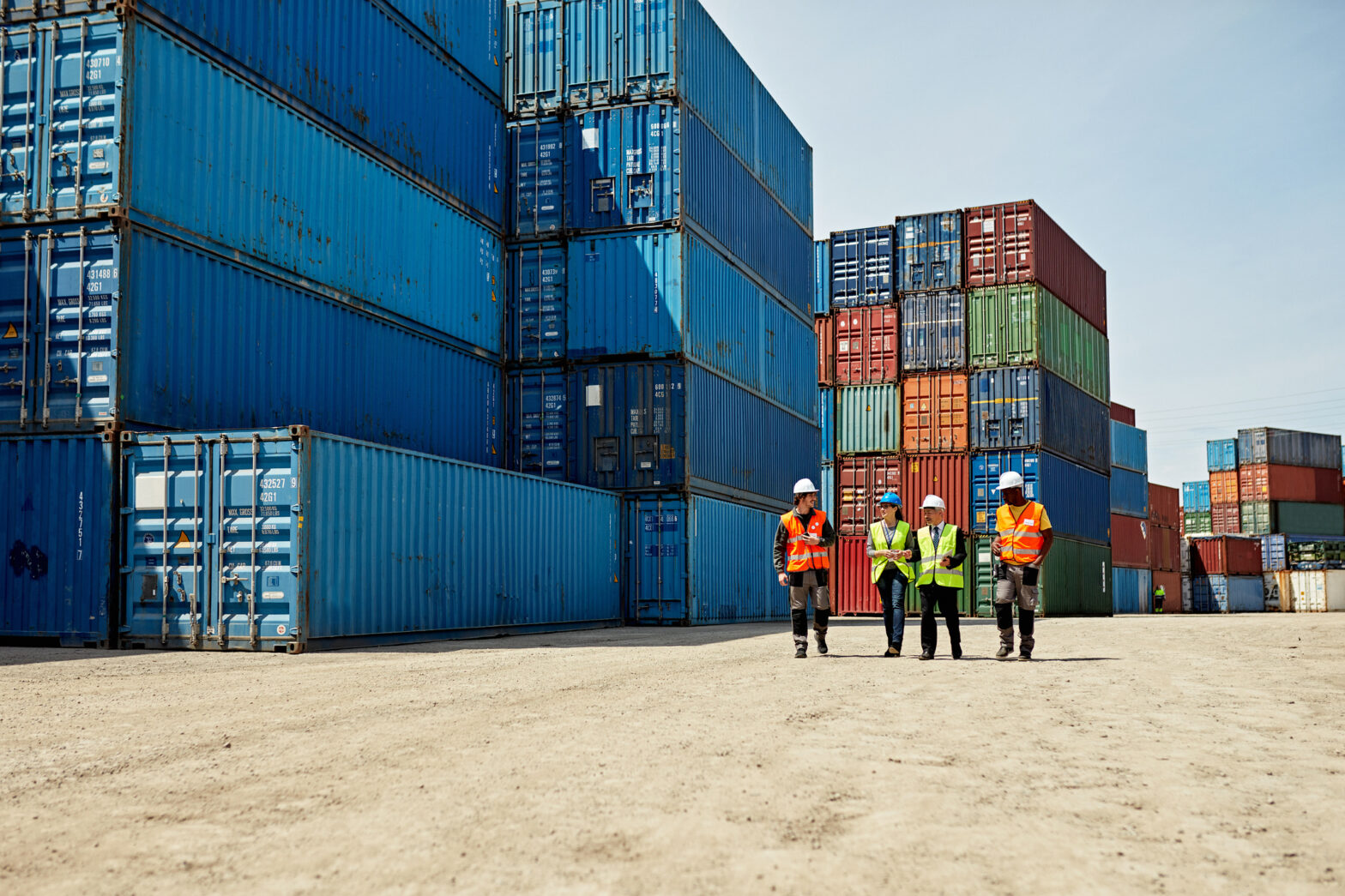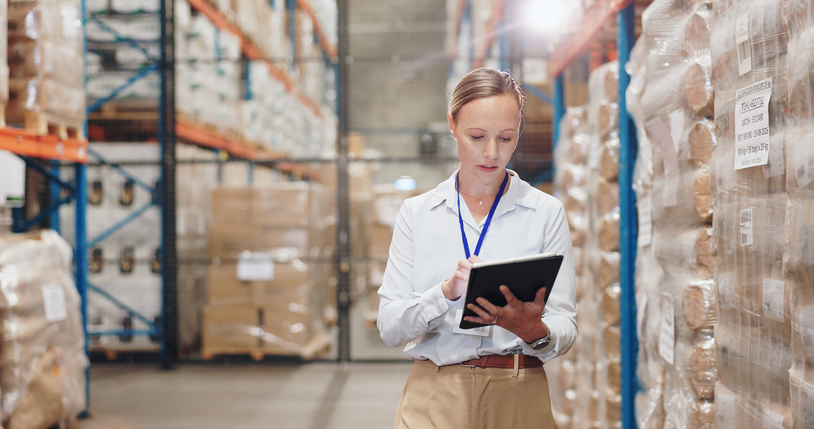What does it mean to be a “good” business? That was the question posed by entrepreneur and business guru Jeannette Pearce MBE before Deborah Meaden took the stage to discuss green business at the SME XPO in London.
Profitability? Sustainability? For serial entrepreneur Pearce, it’s about giving as you take. You may become philanthropic if you make it big, but what’s to stop you giving as you grow? Doesn’t doing good make you good?
“Find your good,” she urged the group of small business founders. Whatever that may be.
When Deborah Meaden stepped onto the stage, it was already clear what her “good” was. It’s what a founder hopes Meaden wants to hear when they add, “Oh, and it’s environmentally friendly” at the end of their Dragon’s Den pitch – confirmed by a hopeful glance from their co-founder.
Deborah Meaden is famously very eco-conscious and, it appears, always has been. She wrote a thesis on climate change at university. As the head of her holiday park business early on in her career, she erected a sign saying the grass would not be cut but instead be left for wildlife. It also saved her a maintenance bill.
“It was all against the tide at the time, customers didn’t care,” she acknowledged.
But now, she said, it’s the consumers driving the change – and that it’s imperative to incorporate “planet-positive” aspects into your business. Covering sustainability, net zero and greenwashing, here are the key takeaways from the business leader’s talk.
‘Trust is the most important thing you have got in your business. That can be lost in an instant and it takes a long time to get that back again.’
Deborah Meaden at the SME XPO in London
#1 – Don’t be tempted to greenwash
Greenwashing is when a business overeggs its green credentials, purely to reap the marketing benefits.
“Greenwashing doesn’t work anymore,” Meaden said. “If you do that, you will never get that trust back.
“Business has been a huge driver to move people towards a greener future. But consumers lose faith because of greenwashing.
“The fact is, all businesses are getting it wrong,” she added. “The reason people trust me and my businesses is because we’re honest. Dock & Bay came onto Dragon’s Den and were using micro fibre towels. They’re not good at all. Now, they use 100 per cent recycled plastic.”
Dock & Bay offers quick-drying towels and swimming shorts made from recycled plastic bottles, enticing the dragon enough to invest £75,000 for a 10 per cent stake in 2017.
“Trust is the most important thing you have got in your business,” she said. “That can be lost in an instant and it takes a long time to get that back again.
“My advice is: decide what you offer and deliver it in an honest way.”
#2 – Focus on biodiversity to net zero
The challenges posed by climate change are well established, but the effect of biodiversity loss on business is often overlooked, despite half of global GDP being moderately or highly dependent on nature.
Changes in biodiversity affects supply chains, and new legislation is on the horizon that means organisations will have to be more transparent about environmental impact. This will mean companies will have to assess and disclose their dependencies and impacts on the environment.
“Anyone focusing on net zero is missing the trick,” Meaden said. “If you’re behind the pace when the biodiversity-to-net zero tsunami hits, you’re in trouble. But if you get it right, you have got the leading edge because not a lot of people are.”
Biodiversity protection and net-zero goals do go hand-in-hand. A 2021 study from Natural England showed that a hectare of woodland absorbs as much carbon dioxide each year as 13 flights between London and Rome.
The report found peatlands and natural woodlands are habitats which have the greatest capacity to store carbon, while saltmarsh and sea grass meadows have a “significant role to play” in helping the UK reach net zero by 2050.
Smaller actions businesses can take include investing in natural capital projects, reviewing purchasing habits and habitat restoration on site.
“The planetary impact is the top priority going on in the world right now, but if you get this right, you will win against your competitors.”
#3 – reassess your supply chain
“I also say look at your supply chain [to be planet-positive]. To do that, you need to look at your contracts,” Meaden said.
“One tool is The Chancery Lane Project, which comes up with clauses to include in your supply chain contracts.
“The biggest impact you can make is with supply chain because you’re also making a statement to them.”
There are various supply chain tools and certifications available to businesses. Examples being Scope 3 from the Carbon Trust, which partners with institutions to pave their way to net zero, and the B Corp movement – a certification which demonstrates a business is meeting high standards of social and environmental performance.
“But it’s not good enough to just say you’re B Corp,” Meaden added. “Robust procurement processes are needed. Look for tools. There are whole organisations out there.
“Reach a fair agreement and be prepared to walk with your feet if they don’t [fulfil environmental promises].
“It takes too long for governments to set goals and targets,” she concluded. “You need to tell consumers what your sustainability means – there isn’t one definition for sustainability. Otherwise, we’re entering a world where we will just miss targets.”
More on sustainability
4 ways to embed sustainability into your start-up
How microbusinesses take the first steps toward sustainability








